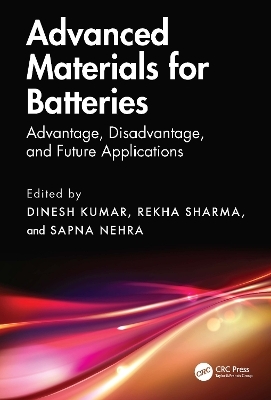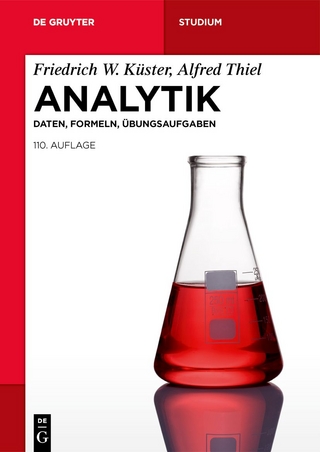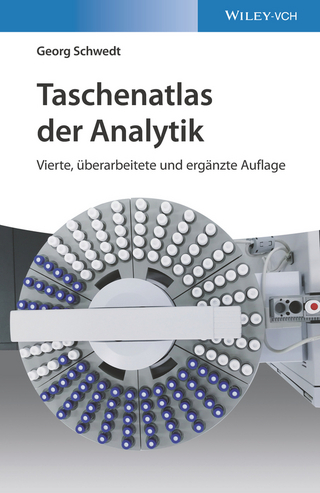
Advanced Materials for Batteries
CRC Press (Verlag)
978-1-032-63133-2 (ISBN)
Exploring advanced materials for batteries is not just a theoretical exercise but a practical journey into the future of energy. This book is an essential guide, tracing the evolution from early battery technology to the latest innovations and equipping researchers, engineers, and students with the practical knowledge to drive the next wave of sustainable energy solutions.
Key Features:
Provides a comprehensive resource for academics, researchers, and engineers in energy storage, with detailed insights into various battery types
Discusses advanced materials for smart and small batteries
Delves into cutting-edge materials designed for compact and efficient batteries
Offers a visionary outlook on the evolution of battery technology and traces historical advances alongside the latest breakthroughs in battery science and future perspectives
This book serves as a beacon, bridging historical milestones with future goals. It thoroughly explores materials, including lithium-ion and sodium-ion, in a manner accessible to everyone. It lays a robust groundwork for innovators in energy storage, steering us towards a more sustainable tomorrow. This work informs and connects readers to the evolving narrative of battery technology.
Dinesh Kumar is a distinguished faculty member at the School of Chemical Sciences, Central University of Gujarat, Gandhinagar. He is an alumnus of the University of Rajasthan, Jaipur, where he earned his master's and doctoral degrees in Chemistry. Professor Kumar's scholarly achievements have garnered numerous national and international accolades and fellowships, and he has consistently been ranked among the top 2% of scientists globally from 2021 to 2023. His research endeavors are primarily directed toward synthesizing capped magnetic nanoparticles (MNPs), core-shell nanoparticles (NPs), and biopolymers. These include the development of metal oxide-based nanoadsorbents and nanosensors for detecting and removing inorganic toxicants, such as heavy metal ions, from water sources. In the realm of water purification, he has innovated hybrid nanomaterials utilizing various biopolymers—pectin, chitin, cellulose, chitosan—and photocatalytic materials. Additionally, his research extends to creating mixed metal oxide-based hierarchical nanostructures with potential energy applications. Professor Kumar's prolific contributions to science are evidenced by his extensive publication record, which includes over 143 articles in prestigious international journals, four books, more than a hundred book chapters, and approximately 100 presentations at various national and international forums. His work is widely recognized, reflected in his h-index of 38, i10 index of 106, and nearly 5200 citations. Rekha Sharma received her BSc from the University of Rajasthan, Jaipur, in 2007. In 2012, she completed her MSc in Chemistry from Banasthali Vidyapith. She was awarded a PhD in 2019 by the same university under the supervision of Professor Dinesh Kumar. Presently, she is working as an Assistant Professor in the Department of Chemistry, Banasthali Vidyapith, and has entered on a specialized research career focused on developing water purification technology. With four years of teaching experience, she has published thirteen articles in journals of international repute, an authored book with CRC Press, and over 50 book chapters in nanotechnology. She has presented her work at more than 15 national and international conferences. Dr. Sharma has reviewed for many renowned journals, including Trends in Carbohydrate Research and Science Direct and Springer Nature titles. She has been recognized as a Young Women Scientist by the Department of Science and Technology (DST), Government of Rajasthan. Her research interests include developing water purification technology by developing biomaterial-reduced NPs and polymers and biopolymers incorporated metal oxide-based nanoadsorbents and nanosensors to remove and sense health-hazardous inorganic toxicants such as heavy metal ions from aqueous media for water and wastewater treatment. Sapna Nehra has been enriching Nirwan University, Jaipur's academic community as an Assistant Professor and Research Coordinator since March 2022. A distinguished alumna of Banasthali Vidyapith, Rajasthan, India, she earned her MSc degree in 2014, followed by a PhD in 2020. Her doctoral research, guided by Professor Dinesh Kumar, School of Chemical Sciences, Central University of Gujarat, Gandhinagar, focused on innovative chemical applications. Before her tenure at Nirwan University, Dr. Nehra imparted knowledge at Dr. K. N. Modi University, Newai, Tonk, Rajasthan, from 2020 to 2022. She is a prolific author with 11 research papers and 32 book chapters published by prestigious international publishers. In addition, Dr. Nehra contributes her expertise as a reviewer to esteemed journals under Science Direct, ACS, and Springer Nature. She is a regular participant in national and international conferences, showcasing her research, which primarily revolves around developing advanced materials, including polymers, bionanomaterials, and metal oxides, to enhance water purification technologies.
1 Introduction to Batteries and Energy Storage 2 History and Development of Batteries 3 Secondary Uses of Batteries and Recycling of Battery Elements 4 Advancement of Materials for Lithium Batteries 5 Metal Oxide-Based Materials for Lithium-Ion Batteries 6 Mixed Metal oxide-based materials for Lithium-Ion Batteries 7 Silicon-Based Materials for Lithium-Ion Batteries 8 Prussian Blue Analogues for Lithium-Ion Batteries 9 Exploring Potassium Ion Batteries: A Promising Candidate for Futuristic Application 10 Mixed Metal Oxide-Based Materials for Potassium Ion Batteries 11 Metal Chalcogenides for Potassium Ion Batteries 12 Recent Advances in Phosphorous-Based Materials for Potassium Ion 13 Zinc-air Batteries: An Approach Towards Basics and Recent Advances 14 Advanced Materials for Positive Terminal in Zinc-Air Batteries 15 Advanced Organic Materials for Zinc Batteries 16 Progress and Prospects of Materials for High-Performance Zinc Batteries 17 Zinc Ions Batteries: How to Improve its Cycle Performance 18 Polyanions Advanced Materials in Sodium-Ion Batteries 19 Metal Oxide-Based Materials for Sodium-Ion Batteries 20 Advanced Materials for Nickel-Cadmium Batteries
| Erscheinungsdatum | 14.11.2024 |
|---|---|
| Zusatzinfo | 22 Tables, black and white; 36 Line drawings, color; 2 Line drawings, black and white; 1 Halftones, color; 37 Illustrations, color; 2 Illustrations, black and white |
| Verlagsort | London |
| Sprache | englisch |
| Maße | 156 x 234 mm |
| Gewicht | 816 g |
| Themenwelt | Naturwissenschaften ► Biologie |
| Naturwissenschaften ► Chemie ► Analytische Chemie | |
| Naturwissenschaften ► Chemie ► Technische Chemie | |
| Technik ► Maschinenbau | |
| Technik ► Umwelttechnik / Biotechnologie | |
| ISBN-10 | 1-032-63133-3 / 1032631333 |
| ISBN-13 | 978-1-032-63133-2 / 9781032631332 |
| Zustand | Neuware |
| Informationen gemäß Produktsicherheitsverordnung (GPSR) | |
| Haben Sie eine Frage zum Produkt? |
aus dem Bereich


